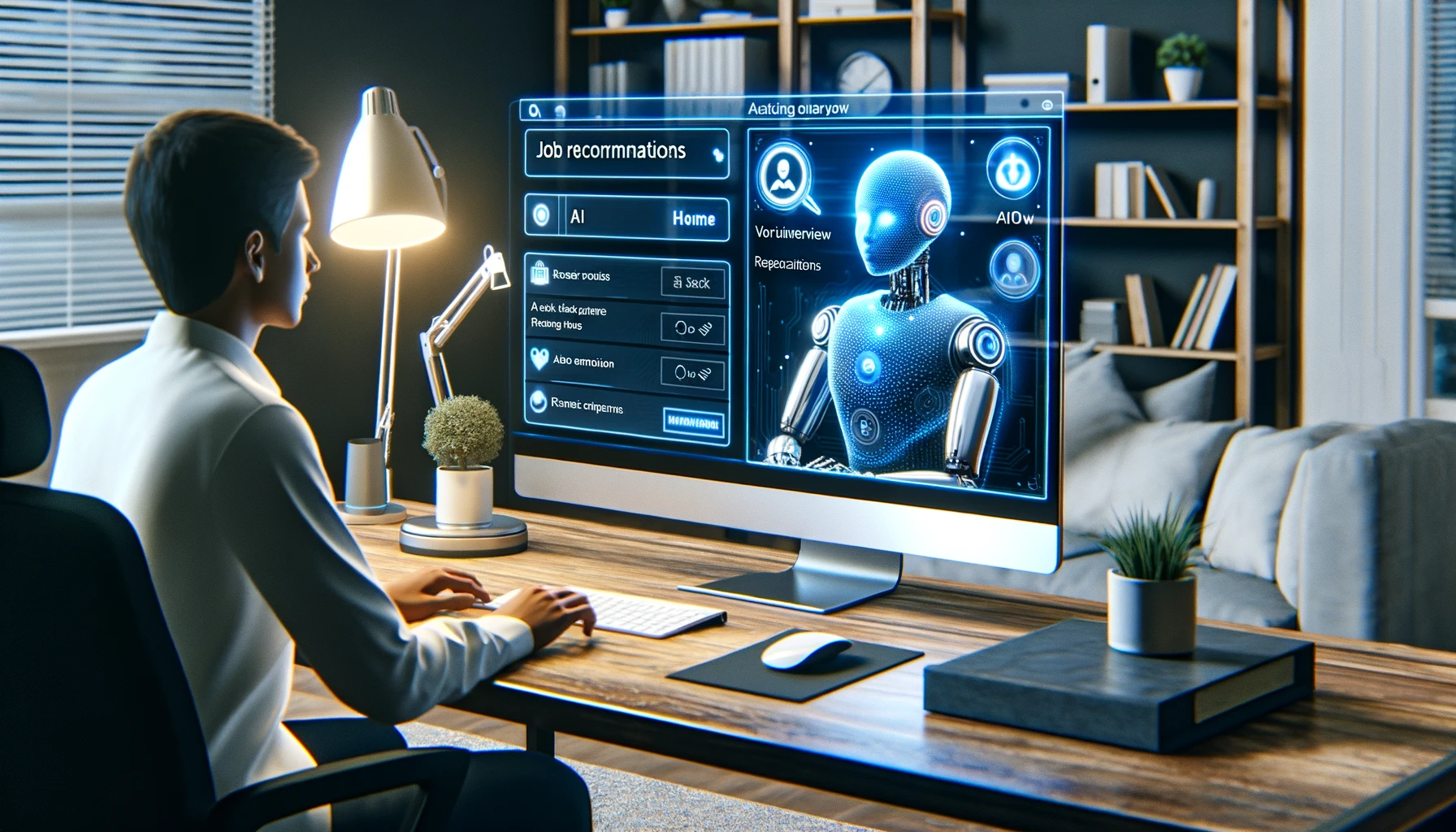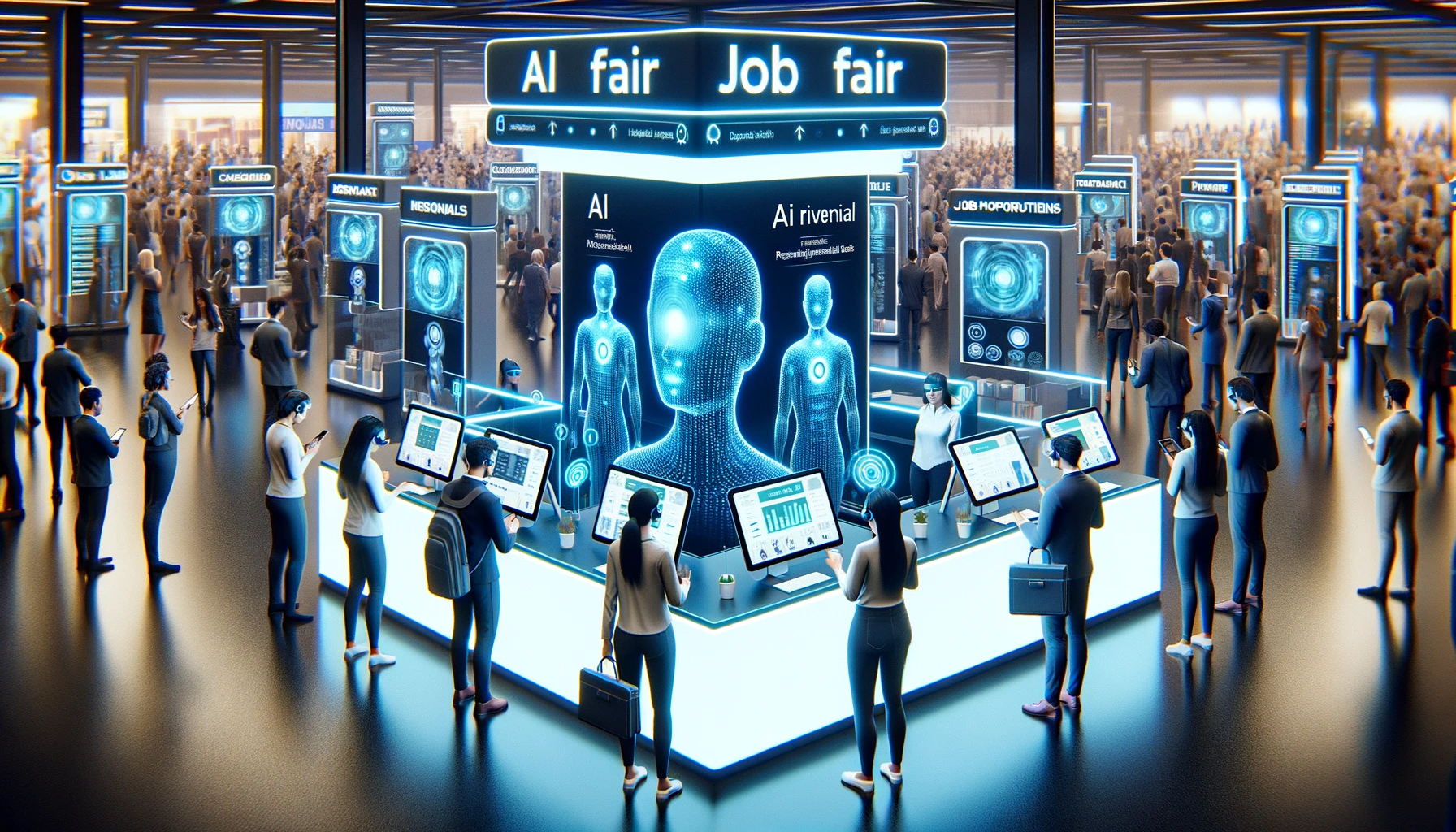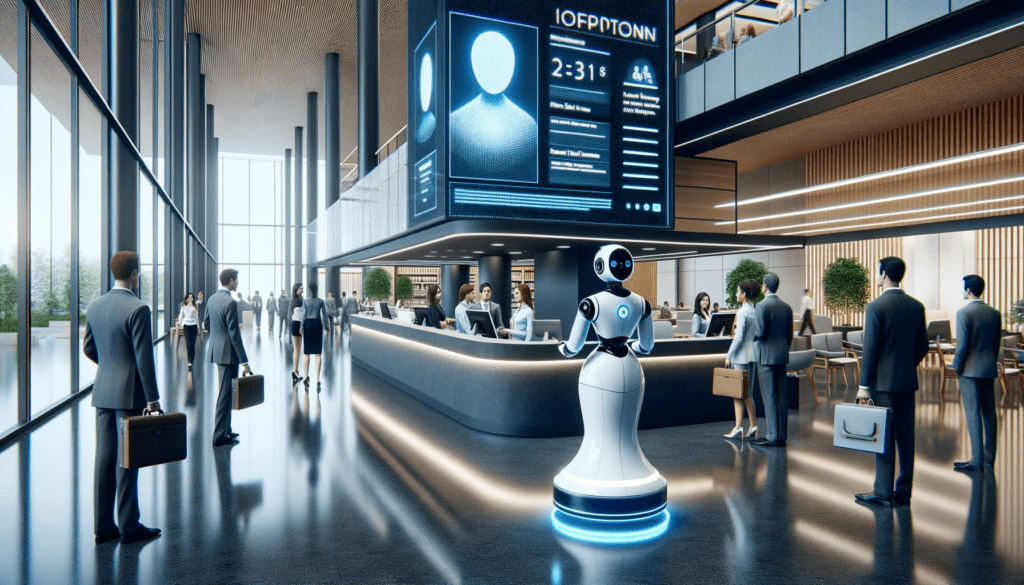Is AI Changing the Dynamics of Professional Networking and Recruitment?
In the fast-paced digital age, professional networking and recruitment have undergone significant transformation. Gone are the days when networking was confined to industry events and recruitment to traditional job postings and manual resume screening. The digital era has ushered in online platforms, revolutionizing how professionals connect and how organizations find and hire talent. These platforms have expanded networks beyond geographical boundaries and streamlined the recruitment process, making it more dynamic and far-reaching.
However, as the volume of online networking and job data surged, the need for more efficient and precise tools became evident. Enter Artificial Intelligence (AI) – a technological innovation set to redefine these realms. AI’s integration into professional networking and recruitment platforms is more than just a trend; it’s a paradigm shift. From algorithms that recommend connections and opportunities based on user profiles, to AI-driven analytics aiding in identifying the most suitable candidates for a role, the impact of AI is profound and multidimensional.
This article aims to explore how AI is reshaping the landscape of professional networking and recruitment. It will delve into how AI-driven tools are making these processes not just more efficient but also more targeted and personalized. The traditional ways of building professional relationships and hiring are being complemented and, in some aspects, revolutionized by AI, creating a new dynamic in the professional world. This exploration will provide insights into how AI is redefining networking and hiring practices, making them more aligned with the needs and pace of the digital era.

The Evolution of Professional Networking and Recruitment
The landscape of professional networking and recruitment has evolved dramatically over the past few decades. Initially, professional networking was predominantly a face-to-face endeavor, reliant on physical meetings, business cards, and personal referrals. Recruitment processes were heavily dependent on print advertisements, direct applications, and manual resume reviews. The advent of the internet and digital technologies, however, marked a significant shift in these practices.
The rise of digital platforms transformed the way professionals connect and interact. Online professional networks, such as LinkedIn, have become pivotal in establishing and nurturing professional relationships, transcending geographical boundaries. Simultaneously, job search and recruitment processes witnessed a digital revolution. Online job portals, corporate career sites, and social media channels became standard mediums for job postings and applications, offering wider reach and greater accessibility.
This transition to digital platforms brought about increased efficiency and broader networking and recruitment opportunities. However, it also introduced the challenge of managing vast amounts of data and the need for more effective ways to match candidates with the right opportunities. This paved the way for the incorporation of more advanced, technology-driven approaches in both networking and recruitment.
Introduction to AI in Professional Networking and Recruitment
Artificial Intelligence (AI), with its vast capabilities, has emerged as a key player in transforming professional networking and recruitment. At its core, AI encompasses technologies like machine learning, where algorithms learn from data patterns to make predictions or decisions, and natural language processing (NLP), which enables computers to understand and process human language.
In professional networking and recruitment, the integration of AI is becoming increasingly prevalent. AI-powered systems can analyze large volumes of data, providing insights and recommendations that were previously impossible or highly time-consuming. In networking platforms, AI can offer personalized recommendations for connections or content, based on users’ interests, activities, and goals. In recruitment, AI can streamline the hiring process by efficiently sorting through applications, identifying the best candidates based on specified criteria, and even predicting job fit or performance.
The potential benefits of incorporating AI into these domains are substantial. AI can enhance the user experience on networking platforms by providing more relevant and targeted interactions. For recruiters and companies, AI can significantly improve the efficiency of the hiring process, reduce biases by focusing on data-driven insights, and help in identifying the best candidates more effectively.
AI in Enhancing Professional Networking Platforms
AI’s impact on professional networking platforms is multifaceted and profound. These platforms, empowered by AI, are transitioning from merely being repositories of professional profiles to becoming dynamic ecosystems that offer more meaningful networking experiences and opportunities.
One of the key AI-driven features in these platforms is personalized recommendations. AI algorithms analyze a user’s profile, activities, and interactions to suggest relevant new connections, groups, or content, thereby enhancing the networking experience. This personalization extends to job recommendations, where AI matches users with potential job opportunities that align with their skills, experience, and interests.
Connection suggestions are another significant AI feature. By analyzing common connections, professional backgrounds, and mutual interests, AI systems suggest potential new contacts, helping users expand their networks more strategically. This is especially beneficial for professionals seeking to grow their networks in specific industries or roles.
Targeted content delivery is also an AI hallmark in these platforms. AI systems curate and recommend articles, posts, and learning materials tailored to users’ interests and professional development needs. This ensures that users are not only networking but also gaining valuable knowledge and insights relevant to their career paths.
Examples of professional networking platforms utilizing AI are numerous. LinkedIn, for instance, uses AI for various features including job recommendations, connection suggestions, and content curation. Similarly, other platforms are leveraging AI to enhance user engagement, provide career insights, and foster more productive professional interactions.
The integration of AI into these platforms is not just enhancing user experiences but also reshaping the way professionals network and engage in their career development. With AI, the possibilities for personalized, efficient, and fruitful professional networking are expanding, making these platforms more valuable tools in the modern professional landscape.
AI-Driven Transformation in Recruitment Processes
Artificial Intelligence (AI) is significantly streamlining the recruitment process, making it more efficient, accurate, and less biased. One of the key areas where AI has been particularly transformative is resume screening. Traditional resume screening is time-consuming and often subject to unconscious biases. AI algorithms can quickly analyze thousands of resumes, identifying candidates whose skills and experiences best match the job requirements. This not only speeds up the hiring process but also ensures that candidates are evaluated more objectively.
Another critical application of AI in recruitment is candidate matching. AI systems use machine learning to understand the requirements of a job and the qualities of successful employees, helping them match candidates to roles where they are likely to succeed. This process goes beyond matching keywords on a resume to understanding the nuances of both the job requirements and the candidates’ profiles.
Predictive analytics is also revolutionizing recruitment. By analyzing data patterns, AI can predict which candidates are most likely to succeed in a role or which might be the best fit for the company culture. This predictive capability helps in making more informed hiring decisions.
Case studies demonstrate the effectiveness of AI in recruitment. For example, a large technology company implemented an AI system for resume screening and reduced its screening time by 75%, while also increasing the diversity of its candidate pool. Another example is a retail corporation that uses AI for predictive analytics in hiring, leading to a noticeable improvement in employee retention and job performance.
Benefits and Challenges of AI in Networking and Recruitment
The use of AI in professional networking and recruitment offers numerous benefits. One significant advantage is the increased efficiency in these processes. AI can automate time-consuming tasks like resume screening, allowing human resources professionals to focus on more strategic aspects of their jobs. Additionally, AI can reduce biases in the recruitment process by focusing on data-driven criteria rather than subjective judgments.
AI also improves the candidate experience. With AI-driven platforms, job seekers receive more relevant job recommendations and networking opportunities, enhancing their prospects in the job market.
However, integrating AI into networking and recruitment is not without challenges. One major concern is data privacy. As AI systems require access to large amounts of personal data, ensuring this data is handled securely and ethically is paramount. Algorithmic bias is another issue; if the data used to train AI algorithms is biased, the AI’s decisions will also be biased. Furthermore, over-reliance on AI can impact human interaction in networking and recruitment, potentially making these processes less personal.

The Future of AI in Professional Networking and Recruitment
Looking ahead, AI is poised to continue transforming the landscape of professional networking and recruitment. Future trends may include the use of more advanced machine learning algorithms capable of making even more nuanced decisions in candidate selection and job matching. We might also see the integration of AI with other emerging technologies like virtual reality (VR) for immersive job interviews or augmented reality (AR) for enhanced networking experiences.
The long-term impacts of AI on job searching and hiring practices could be profound. AI has the potential to make these processes more meritocratic, as decisions are made based on data rather than intuition. However, this also raises questions about the balance between AI and human judgment. While AI can process data more efficiently than humans, it lacks the human ability to understand context and make empathetic decisions.
Conclusion
In conclusion, AI is undeniably reshaping the dynamics of professional networking and recruitment. Its role in making these processes more efficient, less biased, and more candidate-focused is clear. The benefits of AI in these fields are substantial, offering improved experiences for both job seekers and employers.
However, as we embrace the advantages of AI, we must also be mindful of the challenges, particularly in terms of data privacy, algorithmic bias, and maintaining the human element in networking and hiring. The future of AI in these domains is bright, but it requires a balanced approach, where AI complements human judgment rather than replacing it. As AI continues to evolve, it will undoubtedly continue to influence the dynamics of professional networking and recruitment, shaping these processes in ways we are just beginning to understand.
